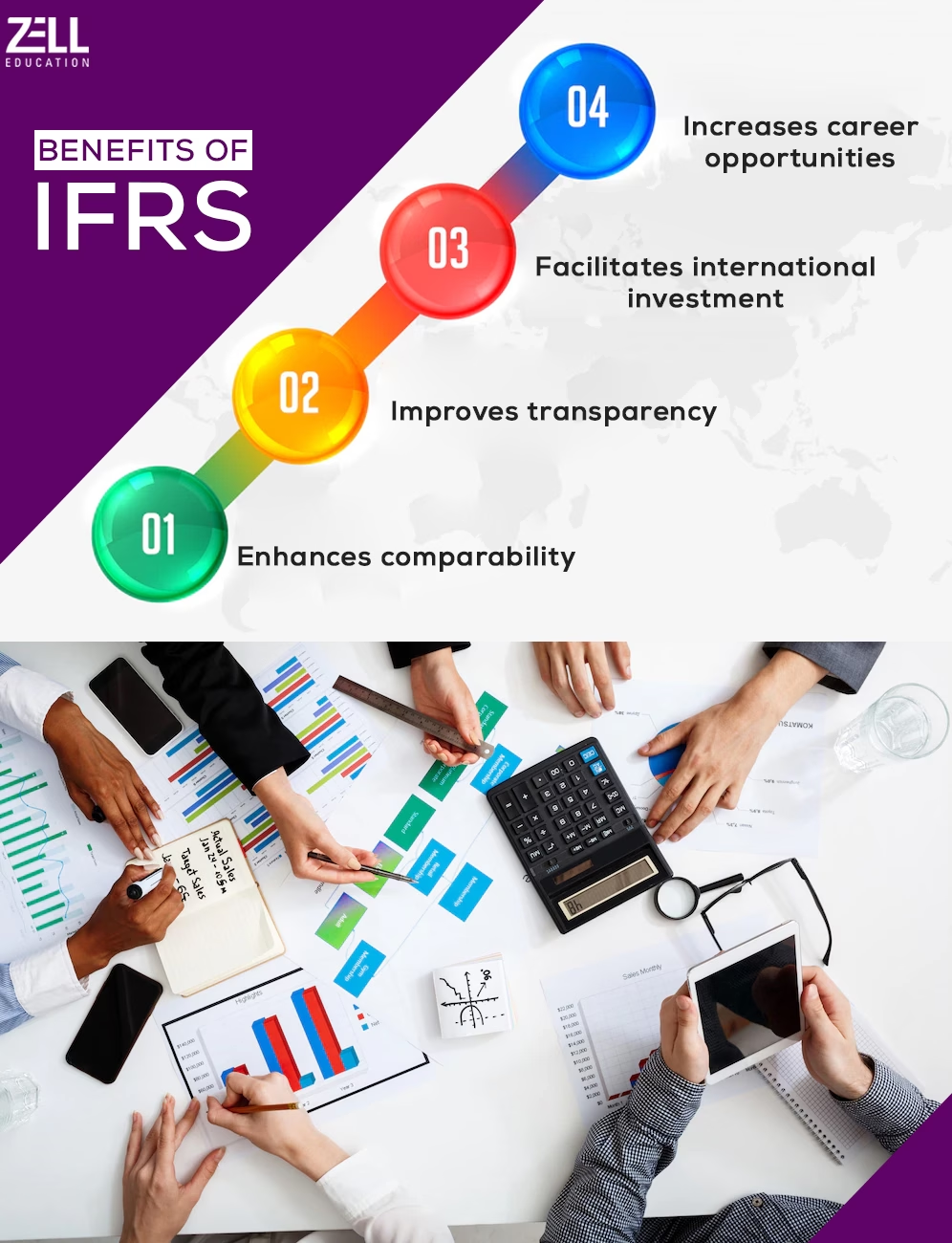The implementation of IFRS has transformed the accounting and finance world. IFRS has certainly redefined the accounting and finance world by providing a global benchmark for reporting financial results. IFRS has significantly enhanced transparency and comparability in financial statements. The adoption of IFRS has been a boon for businesses and has also given great opportunities for young accounting graduates and CA students alike. This blog post will include the implementation of IFRS, how IFRS may benefit users, and the details of the IFRS course.
What is IFRS?
IFRS refers to the international accounting standards that are widely accepted and formulated by the International Accounting Standards Board. It strives to standardise financial reporting in a manner that facilitates the consistency and transparency of financial statements. Through these, companies can represent their financial performance in a standard form. IFRS is implemented worldwide; therefore, it aids in cross-border investment and facilitates comparison of financial data. These have covered a wide scope area, including revenue recognition, measurement of assets and liabilities, and financial reporting.
Implementation of IFRS
IFRS means International Financial Reporting Standards are a set of accounting standards adopted for the same treating or reporting of any kind of financial statement. The International Accounting Standards Board is responsible for the standardisation and regulation of this worldwide accounting standard. Nearly 140 countries are using it as of 2024 while its implementation continues around the world.
Benefits of IFRS
There are many advantages of implementing IFRS by businesses, investors, and other stakeholders. The major advantages of IFRS are discussed as follows:
Enhance Comparability:
IFRS is a common language for reporting financial information that enhances comparability between companies. Therefore, investors can make proper decisions after comparing the performance of various companies based on their financial performance.
Improves Transparency:
IFRS promotes transparency of financial reporting by requiring disclosure of relevant information in the firm’s financial statements. This improves an investor’s and other stakeholders’ understanding of a firm’s financial position and performance.
Facilitates International Investment:
The adoption of IFRS facilitates the companies by offering a global benchmark of financial reporting. Consequently, it enhances the credibility and reduces the cost of the capital of these companies.
Increases Career Opportunities:
The introduction of IFRS has increased demands for professionals who are aware of the IFRS. It means that it has opened new career opportunities for accounting graduates and CA students.
IFRS Course Details
The implementation of IFRS has raised the need for trained IFRS professionals in countries adopting IFRS standards. As a measure towards addressing this, several training and education programs are formulated and added to the curriculum of accounting students as well as CA aspirants. Details of some of the courses offered on IFRS can be explained as:
Eligibility: The IFRS course is open for students of accounts and CA students after the completion of graduation or the CA course.
Curriculum: The IFRS course will focus on all domains of IFRS, including a conceptual framework, presentation of financial statements, accounting policies, and disclosures.
Course Duration: The IFRS course duration differs from one training provider to another, but it ranges between 3 to 6 months.
Certification: Upon the completion of the IFRS course, the trainee can get a certificate issued by the training provider. Some of the most popular certification programs are the IFRS Certificate Program offered by ICAI and the IFRS Certification Course offered by the Association of Chartered Certified Accountants (ACCA).
To know more about the course, head to our blog on Diploma in IFRS Course Details, Eligibility, Syllabus, Skills & Scope.
Conclusion
IFRS has revolutionised the accounting and finance world. It has provided a global benchmark for financial reporting, with greater transparency and comparability in financial statements.
The adoption of IFRS has not only benefitted businesses but has also provided great opportunities for accounting graduates and CA students. The IFRS course provides an opportunity for accounting graduates and CA students to enhance their knowledge and skills in IFRS and to capitalise on the career opportunities created by the implementation of IFRS. If you’re struggling to decide which course to select, don’t hesitate to contact us at Zell Education. Our team would be delighted to offer you the support you need.
FAQs
- Who is eligible for IFRS certification?
Professionals in accounting, finance, and business, like Chartered Accountants, CPAs, and B.Com/M.Com graduates, are eligible for IFRS certifications.
- Is IFRS a good career?
Yes, IFRS is a great career opportunity, especially since companies worldwide adopt these standards, which increase the demand for qualified professionals in financial reporting and compliance.
- Can I do IFRS after BCom?
Yes, B.Com students can obtain IFRS certifications that further their knowledge about international accounting and offer better career prospects.
- What is the salary of IFRS?
IFRS professionals’ wages depend on the position and their experience, but generally, the starting range in India is 6-12 lakhs per year.
- How many exams are there in IFRS?
The number of IFRS exams differs depending on the program; the DipIFR has only one comprehensive exam, whereas the Cert IFR consists of a one-hour multiple-choice test, and the FSA Credential comprises two levels of exams.

